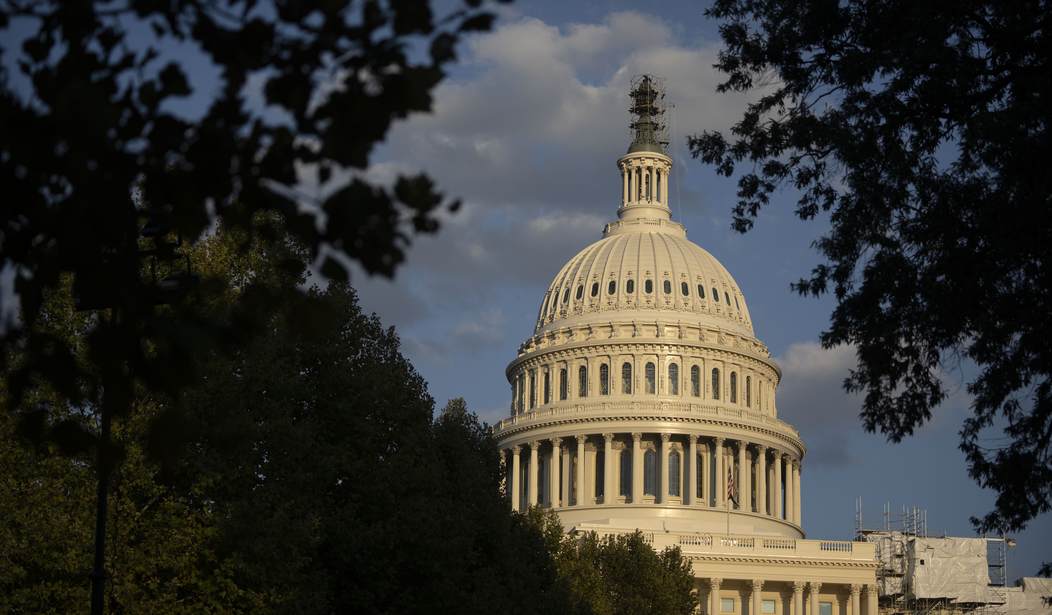Government insiders, like mad scientists, keep insisting that there’s nothing to worry about from the monster they have created. They continue to deny that there is a deep state in D.C. when we all can see the swamp surrounding the nation's capital.
For example, it is considered ethical common sense for someone not to be a player and a referee in the same game. It would take someone as truly selfless as our capital’s namesake, George Washington, to honestly call plays when the players’ future is on the line. It’s the same reason we try, although often unsuccessfully, to have a non-partisan body in charge of elections. Neither side should have an advantage by having their people on the side influencing the outcome.
However, these kinds of ethical conflicts don’t seem to cause people to even bat an eyelash inside the swamp. It’s all too common for lobbyists to get government appointments to groups where they are asked to call balls and strikes when the conflict of interest they bring from their day job should immediately disqualify them.
Nothing illustrates this better than the case of Kim Glas, who by day serves as the president and CEO of the National Council of Textile Organizations (NCTO), an organization that represents the interests of the U.S. textile industry. In that job, she advocates for protectionist policies that shield domestic textiles from international competition like high taxes on imports and policies that prevent the sale of foreign-made textiles in the U.S.
However, when not on the clock as a Textile Industry lobbyist, she serves – thanks to an appointment by Senate Majority Leader Chuck Schumer (D-N.Y.) – as a member of the U.S.– China Economic Security and Review Commission (the China Commission), where she poses as an unbiased government official who is concerned about Chinese imported textiles. The congressionally created commission’s purpose is to “monitor, investigate, and submit to Congress an annual report on the national security implications of the bilateral trade and economic relationship between the United States and the People’s Republic of China, and to provide recommendations, where appropriate, to Congress for legislative and administrative action.”
It should be mind-blowing that Glas is a player with clear special interests when it comes to Chinese textile imports but is also asked to be a referee advising on the same policies she gets paid to push a very clear agenda on. But in the swamp, nobody takes notice when this should raise alarm bells like Frankenstein’s monster playing with the little girl by the lake.
On September 13 of this year, Glas, in her role as head of the NCTO (player), issued a statement opposing the de minimis exemption from tariffs for small-dollar imports under $800 and “called on the administration to use its existing executive authorities to limit the severe damage to our industry created by the de minimis loophole.”
Interestingly, earlier in the year at a May 23, 2024, hearing titled “Key Economic Strategies for Levelling the U.S.-China Playing Field: Trade, Investment, and Technology,” Glas, in her role as commissioner (referee), was very actively questioning witnesses while acting very concerned about Chinese imports. Shockingly, her paid work for the U.S. textile industry and her professional bias on this topic weren’t disclosed until her questioning. She even spoke about “de minimis” and gave a speech about how domestic producers are harmed because of a “tariff-free system.”
Her conflict here was as clear as daylight but was never acknowledged other than a mention on the Commission website that serves as “checking the box” on issues of disclosure. Something one can only imagine happening in the monster movie world of the D.C. swamp.
Ignoring this conflict has also turned out to be very lucrative for Glas. According to the NCTO’s filing (2022 990 form), Glas made $586,333 in reportable compensation and $35,700 in other compensation from the organization and related organizations. That adds up to $622,033 for representing the interests of the U.S. textile industry.
Then, as a member of the Commission, Glas made $184,115 in 2023. That alone would be an elite salary for almost anyone outside of D.C., but Glas taking a paycheck as both advocate and arbitrator should set off alarms. In the swamp, they have a very cute name for when someone gets paid by the government, with taxpayers’ dollars for work they are already being compensated for: “double dipping.”
Ultimately, it’s consumers who suffer from special-interest-motivated policies like this when they end up paying higher prices for these everyday products that are currently exempt from tariffs. According to the American Institute for Economic Research, people in the poorest zip codes would face a hike of tariff taxes of 12.1% on purchases of imported products if Glas’ group is successful.
Congress is likely to load up the China Commission again this fall, and some might want to object if Glas is appointed again to work for and get paid by an organization that recommends policy when she is simultaneously drawing a paycheck from the NCTO to push their agenda.
The battle over the proper role of tariffs to protect American industry from competition abroad is a legitimate conversation to be had and always will be. But it should be done by people who do not pretend to be something other than what they are—advocate or arbitrator, player or referee. Only in Washington could a situation like this occur for so long with nobody noticing the ethical conflict it creates.









Join the conversation as a VIP Member